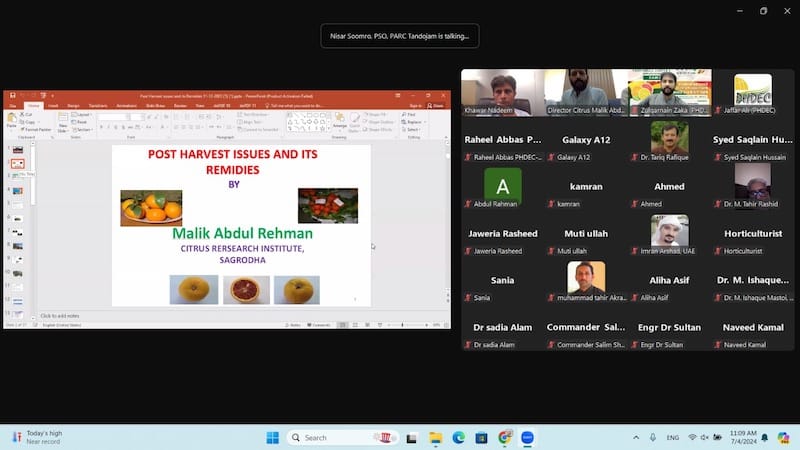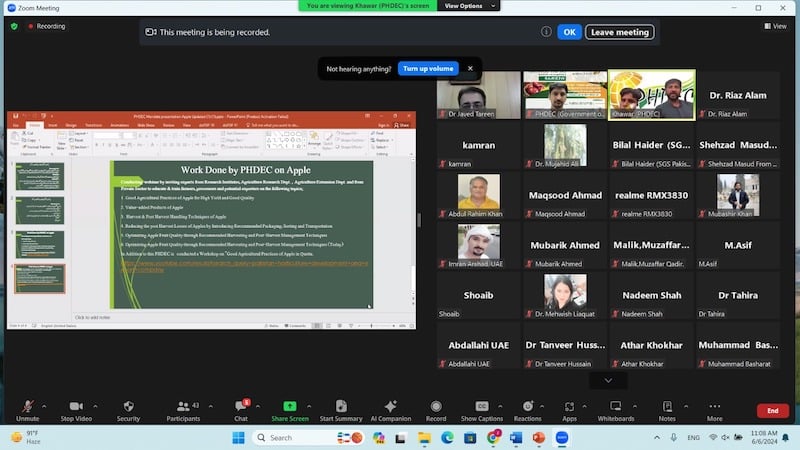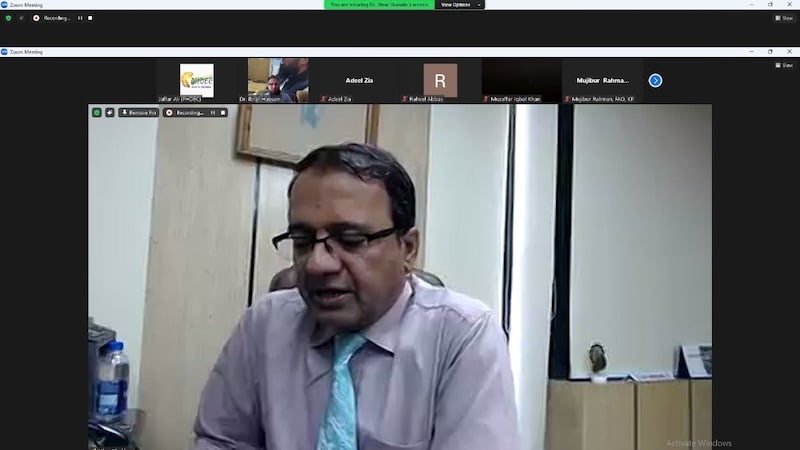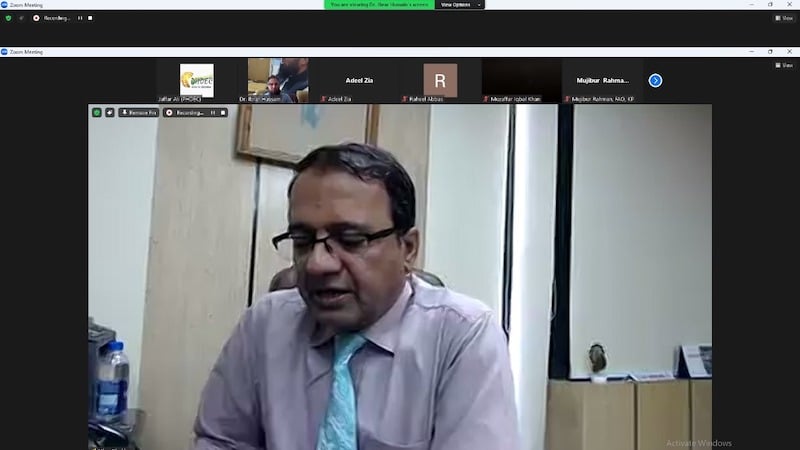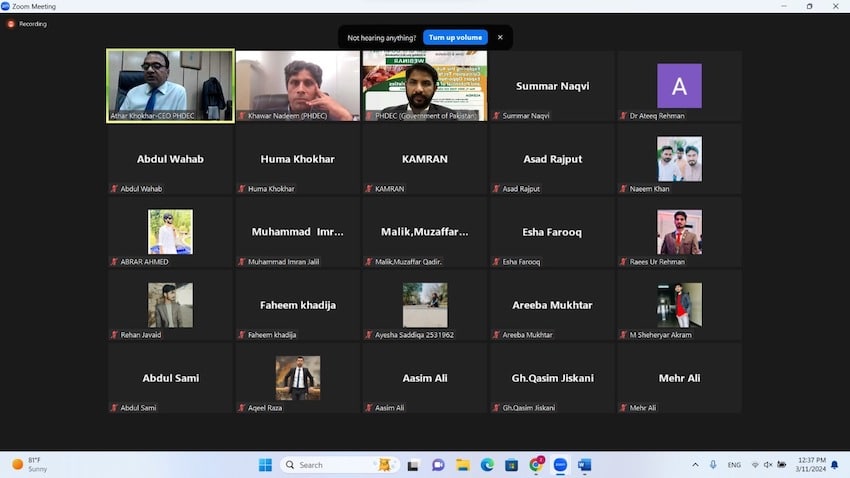Good Agricultural Practices of Citrus for High Yield and Good Quality
Today, on July 4th, 2024, PHDEC conducted an insightful webinar on “Good Agricultural Practices of Citrus for High Yield and Good Quality.”The primary aim was to engage stakeholders from Pakistan on critical issue of Citrus Orchard Management, focusing on achieving top-notch quality and yield.We were honored to have Mr. Malik Abdul Rehman from the Citrus Research Institute, Sargodha, who provided an in-depth overview of citrus orchard management. He covered essential topics such as fruit setting, development, insect/pest & disease management, and nutrition management.Our participants, ranging from growers, processors, exporters, to R&D and academia, had their questions thoroughly addressed and left the webinar well-informed and satisfied.Thank you to everyone who joined and appreciated PHDEC’s initiative in addressing this vital topic. Together, we are paving the way for a brighter future in citrus farming!


